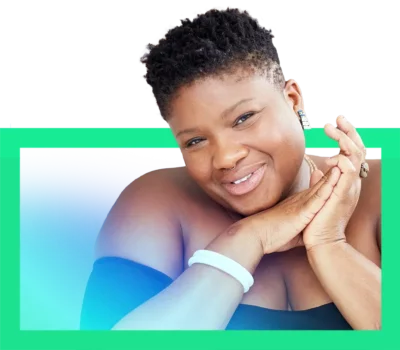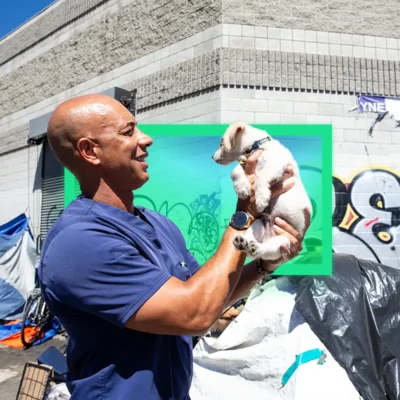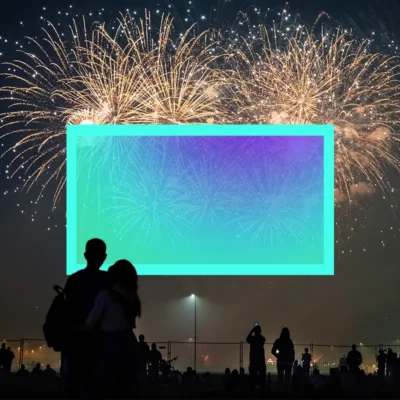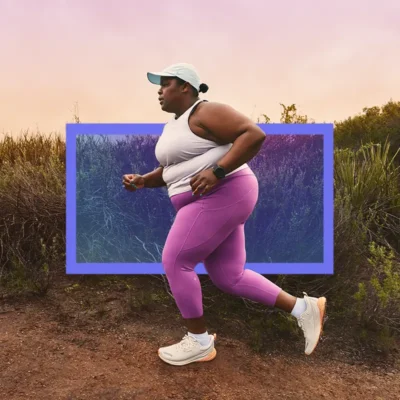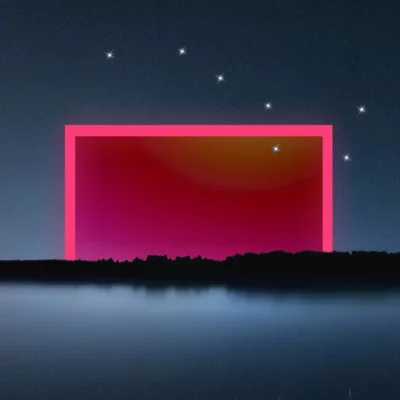You are enough, messiness and all
Jessamyn Stanley, author of Yoke: My Yoga of Self-Acceptance, realizes one day that her life has become filled with unwanted clutter. Suddenly, how she’s perceived on the outside no longer reflects what she feels on the inside. But in her efforts to minimize her footprint and live a minimalist life, Jessamyn learns something unexpected: She can choose to love who she is right now, messiness and all.
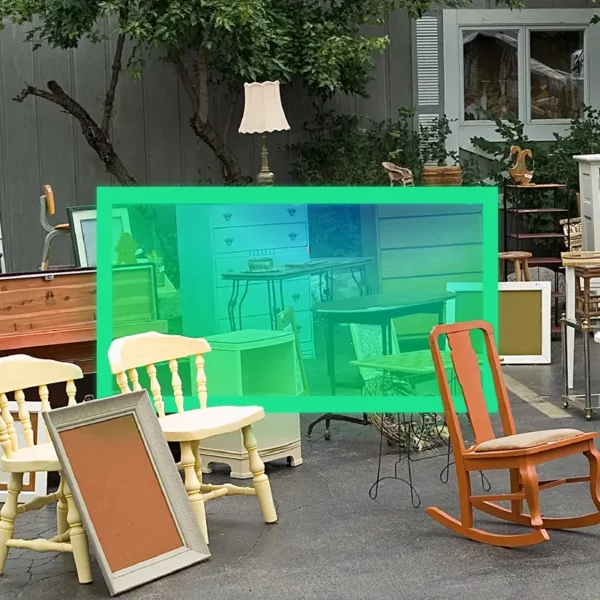
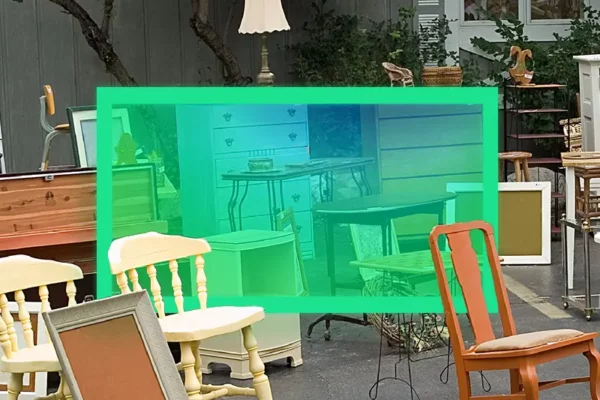
Table of Contents:
Transcript:
You are enough, messiness and all
JESSAMYN STANLEY: Living in this rambling, 100-year-old Southern Victorian house, I feel like the old lady who lives in a shoe. Or the bag lady in that Erykah Badu song. Or that character in the movie Labyrinth, who lives in a junkyard and is so deeply embedded in the junk, that she’s become a part of it. I want to shed all of it. I want to clear out all this chaos that has come to define my life.
ROHAN GUNATILLAKE: Jessamyn Stanley grew up in a family that valued experience over material possessions. But as a successful entrepreneur, she finds herself accumulating, and becoming attached, to the world of things. In this week’s episode, we learn what happens when Jessamyn challenges herself to simplify her surroundings. And things don’t quite go according to plan.
In this series, we combine immersive first-person stories, breathtaking music, and mindfulness prompts so that we may see our lives reflected back to us in other people’s stories. And that can lead to improvements in our own inner lives.
From WaitWhat, this is Meditative Story. I’m Rohan, and I’ll be your guide.
The body relaxed. The body breathing. Your senses open, your mind open, meeting the world.
STANLEY: The North Carolina sun warms the wooden boards of my friend’s back deck. Through the sliding glass door, I see their sprawling open kitchen — the gun metal gray fixtures and exposed brick. This house feels very modern, but also classic. It’s in a part of Durham that’s being heavily gentrified. Every time I come back here, it’s like some huge change has happened.
My friends and I sit in a loose circle of folding chairs on the deck. On our laps, we balance plates piled high with barbecued chicken and rice and grilled vegetables. The smell is amazing. Most of my friends in Durham still work in the restaurant scene where we all met. So the food at these gatherings is always fire.
I’m 33 years old and it feels like in the past few years, I’ve been going through huge changes too. I’m no longer in the restaurant industry like my friends. I teach yoga. I write for magazines. I publish a book. My work explores yogic spirituality and identity. I speak honestly about what it’s like to be fat, Black, and queer, through a 21st century American lens. My posts online get a lot of attention and I become an entrepreneur. There’s a spiritual richness to everything I put out in the world now. Which is not to say my life is calmI work all the time and travel a lot. I really cherish moments, where I can slow down, like right here.
After dinner, my friends want to play a game. They explain how it works. Someone draws a card with a description on it, and we all write down the name of the person here who best fits that description. It sounds good for a laugh.
A few rounds in, my friend Julia draws a card and reads it: “Person most likely to be upset if they lost all their possessions in a fire.”
Everyone starts scribbling down their votes. When it’s time to count them up, it’s not even close. Every single piece of paper points to me: “Jessamyn.”
Wait what? Excuse me? I’m shocked. Offended. I’m a double cancer, so I’m feeling this deep. They think I’d be upset to lose my possessions? Yoga is, like, the opposite of acquiring possessions. Deep inside, there’s always a part of me that’s been critical of the work I do — my success, my exposure. Hearing my friends say this sends it into overdrive. Am I doing a bad job as a yoga teacher? How long have my friends been thinking this?
Everyone’s smiling, sipping their beers and hard seltzers. They move on to the next card. But my mind is not moving on. I’m not materialistic. That’s not me. That’s never been me. Has it?
I look down at my outfit. I’m wearing a matching jumpsuit I received as a gift from a pricey brand. I’ve got tons of free swag like this from brands that want me to promote their products online. It piles up in my room and in my closet. And I still go shopping. I visit the same retail websites over and over. I keep carts open in several tabs on my browser. It’s a lot.
Growing up, my family doesn’t have a lot of money. My dad is a teamster, drives for UPS. We’re working class and raised to be humble. Buying things in our house, even for a birthday or Christmas, it’s just not a priority. We don’t place a lot of value on material things because it’s assumed we just can’t afford them.
But when I’m 14, I get the urge to have more. To be more. I get a scholarship so I can attend Salem Academy — a prestigious boarding school for girls in North Carolina. There, I’m exposed to wealth I never imagined — families with fleets of luxury cars, girls with special allowances just for buying clothes.
I start to struggle with both my grades and my self worth. The girls at Salem are predominantly white and pretty and thin.. They seem so happy and confident in ways that I can’t imagine. Their lives are so full.
Subconsciously, I start to believe that I need to be more like them. That if I can acquire those same signs of material wealth, I’ll be beautiful. I’ll be smart and successful. I’ll be good.
Back on the porch in Durham, my friends burst out laughing at something I don’t even hear. I’m still in my head, thinking about the past, thinking about all the unnecessary chaos I’ve brought into my life — trying to live up to this ideal of a happy, successful person. I thought I’d outgrown this. I thought I was the calm, spiritual yoga teacher. But look at all the possessions I don’t need — all the busy-ness, all the mess. I’m shocked and ashamed.
I don’t want this to be true. I can’t accept this. I don’t want to be this kind of person anymore.
I stand in the doorway of the bedroom that I use as a closet. It’s full of stuff — old, broken bits of furniture, empty laundry containers, discarded Amazon boxes. Every other room in the house looks the same. Now that my partner Ashe and I are moving out, I’m so aware of all that we’ve accumulated. Seeing it laid out like this is overwhelming, but I’m determined. I grab a garbage bag, and stuff it with wire hangers no one wants.
We sold as much as we could at a yard sale. So a lot of what’s left is food. So much food. The food waste is devastating. And packaging from PR firms. Actual literal trash that I have kept, because it symbolizes that somebody loved me once or somebody saw me once. Now, it’s time to get rid of it all. We’re just trying to get everything out to the curb before garbage pick-up. Our cats are winding through the space, very confused.
Living in this rambling, 100-year-old Southern Victorian house, I feel like the old lady who lives in a shoe. Or the bag lady in that Erykah Badu song. Or that character in the movie Labyrinth, who lives in a junkyard and is so deeply embedded in the junk that she’s become a part of it. I want to shed all of it. Not just the belongings, but the house itself. And my social group. And my overly busy routine. My days are stacked full of appointments and meetings and get-togethers that I used to love, but I’m coming to resent. That’s not who I am. I’m not a calendar invite. I’m not a schedule book. It all just feels like too much. It’s like a skin I desperately need to shed. I want to clear out all this chaos that has come to define my life.
As I haul more trash bags and boxes out to our overflowing lawn, I think, it’s time for me to learn who I am without all the stuff?
That’s why Ashe and I are moving out of this 2000 square foot house in Durham, into a 56 square foot camper trailer. It’s not a small decision. And it’s not something I ever anticipated doing. I don’t know what to expect. But I have an idea of what it means to live a life with less things — a life of minimalism. I want to see what that’s like. I want to be surrounded by peace and simplicity. I want to get back to being closer to the person my parents raised me to be. I want to be good.
GUNATILLAKE: That clutter-free peace Jessamyn describes sounds so attractive. I imagine we’ve all desired that from time to time. But let’s take a moment to imagine that same sparse simplicity existing within us. What would it look like to be a minimalist on the inside, instead of on the outside?
STANLEY: Oh my goodness, Vermont is so beautiful. We’ve been on the road for a couple months and we arrive at that time of year when the trees start to turn all kinds of colors. The leaves change in vibrant waves that spread over the hills and valleys — burnt orange, crimson. It’s just the most beautiful explosion of color.
Ashe and I unfold our camp chairs and sit with our cups of tea at a campsite. We look at each other and shake our heads in disbelief. We actually pulled it off. We got rid of almost everything, moved out, pared down our existence to the essentials and now live on the road.
Ashe takes a sip from her mug and gives me a huge smile. She’s wearing a cut-off tee, basketball shorts, and a ball cap. She’s got short, swoopy red hair — it’s a very 90s boy band vibe. I smile back. I close my eyes for a moment and let out a huge exhale. So often these days, I feel the deepest sense of relief.
But, it never lasts for long.
There’s so much happening at work. Even though I’m on the road, I’m still keeping up my business online. So I’m running digital operations with a team of people working across the country in different time zones. We’ve got multiple campaigns that are launching this week, and Ashe and I keep having to leave our campsite, so we can drive around and find WiFi.
We start to argue about the priorities of the day. It’s challenging enough to be in partnership with someone under normal circumstances, but Ashe and I aren’t just romantic and domestic partners. We’re also business partners as well. Living and working in such tight quarters puts a strain on everything.
There’s a constant push and pull between my desire for a minimal life of inner peace and my drive and ambition. I thought the problem was all my possessions. Once I got rid of those, I’d be better. But now, I don’t have anything here but me. And I feel stressed. I feel extreme.
I glance at the time on my phone. I have a call at 10. We finish up our tea, then I rush around tucking things into cabinets so they don’t shift around while Ashe drives. I grab a folded pair of leggings off the bed and put them back in the drawer under the bench by the table — the one drawer that now fits all my clothes. The camper is very, very cozy. There’s room for a minifridge, a queen size bed, and some shelves where we put the limited number of books we brought. We own so little now, that the things we do have, carry more importance.
As I put things away, Ashe starts driving and we start fighting again. We’re fighting about nothing. We’re both just frustrated. There are a lot of roads that you can’t take in an RV. We try to map things out, but it can be slow and annoying. We’re always in a rush. There never seems to be enough time. Life on the road is not the Kerouacian dream we imagined. It takes forever to break down the camper before travel or to make camp when we arrive at a new destination. There are limited shower facilities and we’re always using public restrooms. We never have any privacy in our home space, and always feel right on top of each other. Every day feels like a lot.
We eventually make our way back to civilization and Ashe pulls up to a cafe with WiFi. We basically take up all the parking spaces. I take out my laptop and my headphones and I dial into the meeting. My head is aching before the call even connects.
In many ways, my life has become small like this. And that seems right. Everything I need is right here in this RV. I’m embodying the ideals of minimalism. Or at least I’m trying to. So, why don’t I feel better?
I barely hang up the call when Ashe tells me she needs help turning the RV around. The parking lot is a tight space with a dead end. We’re both still mad at each other from this morning. But this is where the rubber meets the road in a relationship. The argument doesn’t matter. We just need to get out of this situation.
I start to open the passenger’s side door when a beat up sedan pulls up alongside us. The driver rolls down her window.
“Hi there!” she says. She’s middle aged, excited, beaming. “How’s your day going?” Our camper is so high off the ground that this woman is a full foot below us. I have to look down to make eye contact. I feel flustered and embarrassed. I apologize for taking up so many parking spots, but she doesn’t seem concerned.
She points to some windows above the cafe. “My mom lives up there,” she says. “And today, she turned one hundred years old! Can you believe that? Isn’t that so crazy?” She’s laughing, shaking her head. It’s such an unexpected thing for a stranger to share. It’s so sincere. Time slows down. I can’t help it; I start laughing along with her. Things feel suddenly intimate. I have to look down into this woman’s car to have this conversation, but I still feel so connected somehow.
We only chat for a minute or so. We wish her mom a happy birthday. The whole thing is so small, so weird, so perfectly imperfect. But the interaction catches me off guard. I’m suddenly grounded, feeling very in this moment.
All morning I’ve been anxious about work, mad at Ashe and the difficulties of camper life, quietly admonishing myself for not being the right kind of minimalist. But right now, right outside my window on this random road in Vermont, this woman and I are having the most human interaction of all time. This feels like enough.
Isn’t it so incredible that somebody turned a hundred years old? Maybe life doesn’t need to be more complicated than that.
We wave goodbye to the woman and pull out of the parking lot. I’m surprised by how different I feel after talking to her. We get back on the road. The fall leaves whip past my window in a fiery blur.
I think about how much of my energy I put into trying to be someone different. I always try to blame things on something else. In high school, it’s that I don’t have material wealth. In North Carolina, it’s that I have too much stuff. But now, I’ve peeled all that away and so much of the unhappiness is still there. My minimalism is just pointing out the chaos that lives inside me.
And maybe that’s okay.
I’m always trying to live up to this unattainable idea of who I should be in the future. But this simple conversation with a stranger is like the universe reminding me: “You’re here now. You’re a human being. You’re good. You’re here. You don’t need to do anything more than that.”
There is messiness. There is calm. And it’s all okay. I am the messiness and I am the calm. And that’s all okay. I feel a sense of relief wash over me.
GUNATILLAKE: It’s all okay. Let’s ourselves recognize the calm and the messiness in our lives. The perfect and the imperfect. The clean and the chaotic. They’re both always there, in this moment even. It’s all okay.
STANLEY: The fog is starting to roll in. The air is cool and brisk. The ocean stretches out before me. I roll up my sweatpants and walk to the waterline, letting my toes melt into the wet sand. Pacifica Beach is my favorite place to come and just look at the ocean. It’s so much bigger than all of us and it is relentless. It doesn’t care about emotions. It’s just true. Coming down here from where we live in the East Bay helps clear out the muck in my mind.
After our journey in the RV, we land in northern California. Everything is new, like the persimmon tree and the fig tree in our backyard. We have a small house. We only buy what we need. I don’t miss my old stuff at all. But I don’t beat myself up for owning what I have, either. Every possession, even my new rolling pink, has inherent value. It matters.
When we started out in the camper, I didn’t even totally understand what minimalism was. Now I know it’s not about owning possessions so much as it’s about ownership of self. Chaos and all. It’s about finding my inherent value. Remaining connected to it.
There are days where I really struggle with the voices inside me. Sometimes my teenage self still comes back and tries to make me the bad guy. Tries to tell me I’m not good enough as I am. That I need to try and be someone else. That process of peeling back the layers until it’s just me it happens again and again.
But on my good days, I don’t focus as much on who I think I should be. On the things I need or the things I need to get rid of. Instead, I accept who I am, right here, right now, on the inside. As the waves wash around me, I realize that the ultimate minimalism is to just exist. To just be and be comfortable with that.
We’ve all got to figure out how to respond to those internal voices that tell us to question our value. Sometimes we make big changes in our lives to test how something new feels. That’s empowering, but it’s not always necessary. Because the lesson we need to keep coming back to is this: You are enough.
You’re here now. You are here. You’re good. You don’t need to do anything more than be who you are.
Rohan’s closing meditation
GUNATILLAKE: Thank you Jessamyn.
Jessamyn’s story points to a central theme in mindfulness — that of letting go. Of softening our relationship around things.
From my experience, we start with learning to let go of things outside of ourselves.
That then gives us the space to focus on the new work of learning to let go of things inside ourselves — interested in what is left as more and more is released.
When early on in my adventures in meditation, a teacher once told me that the path is one of renunciation. I thought they meant the whole monastic thing of living a life without many material possessions, just like that teacher did. But now, I know what deeper renunciation, deeper letting go, really means.
So, inspired by Jessamyn’s story, please do join me in a short meditation.
It’s a practice inspired by the idea of letting go and Jessamyn’s own teaching of body-based techniques.
Long-time listeners may have tried this technique before, And we start, if it’s possible for you, by balling up one of your hands into a fist.
Keeping the hand tight, notice the power here. The strength of your grip. It’s potential. You can hold it even tighter if that feels okay.
And now let it go.
Noticing the release that comes with that.
Turn your hand so it’s palm up. Palm up. Still able to hold things, to hold the world even, but now free of tension.
Try that again a couple of times if you like.
Dropping your awareness into your hand and knowing the difference between tension and freedom. Between tension and lightness. Really landing the knowledge of how the palm up hand can still hold things, but without holding tension.
And now to finish, again inspired by Jessamyn, another dimension of letting go letting go into.
Let’s let go into the messiness.
While there may be glimpses of order now and then, our minds and bodies are often chaotic, often messy.
Breathing.
Letting the shoulders and hands and jaw be soft. Letting the eyes be soft.
And recognizing that it’s okay for the messiness to be here. We’re complex beings trying to navigate a universe of other complex beings. It’s going to be messy.
So how about we let go into the messiness, dropping the need to resist it or for it to be different. It’s okay, you know. This is okay.
We’re closing off now, so if you want to take letting go as a bit of a theme for this week ahead, then I’d very much welcome that.
It might be letting go of an item you don’t really need and donating it. It might be letting go of a pattern of thought you often have, just to see what happens. It might be letting go into something.
You work it out. And with that, thank you Jessamyn, and thank you.
Go well.
We’d love to hear your personal reflections from Jessamyn’s episode. How did you relate to her story? You can find us on all your social media platforms through our handle @MeditativeStory,or you can email us at: [email protected].
